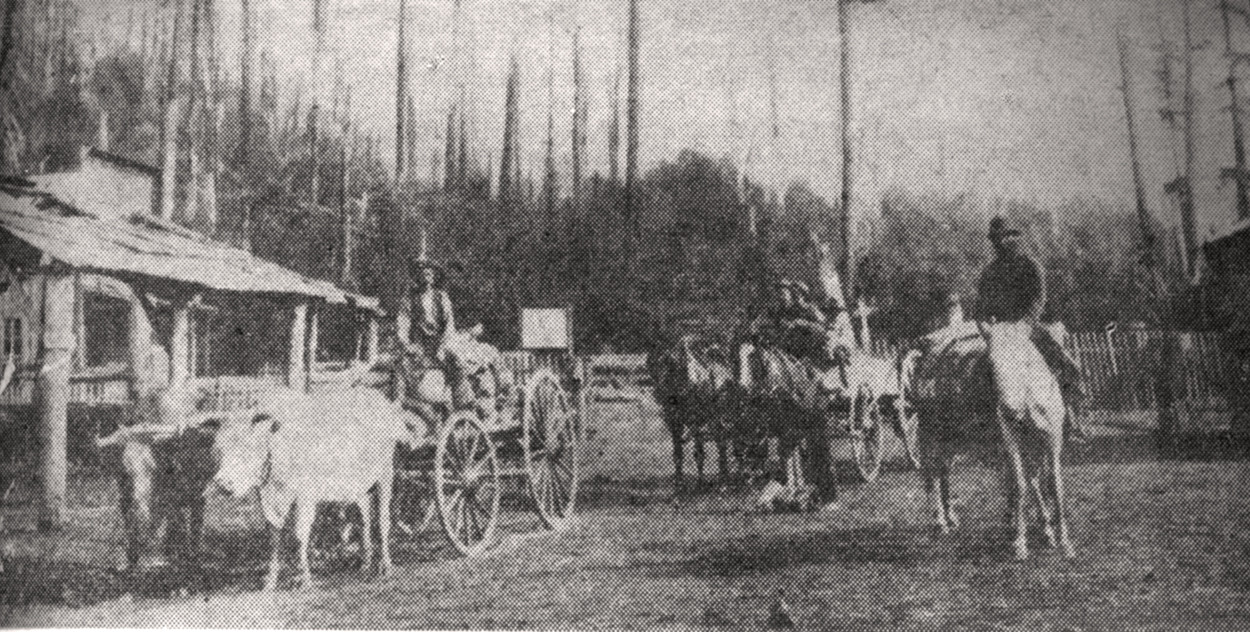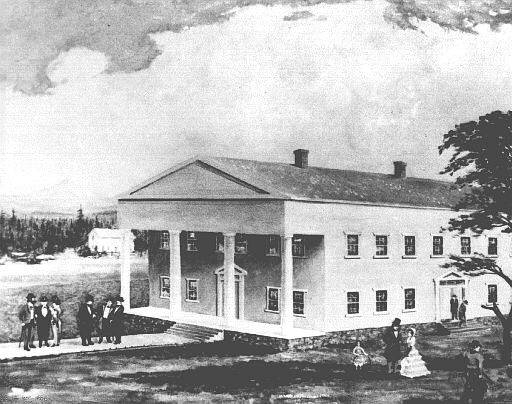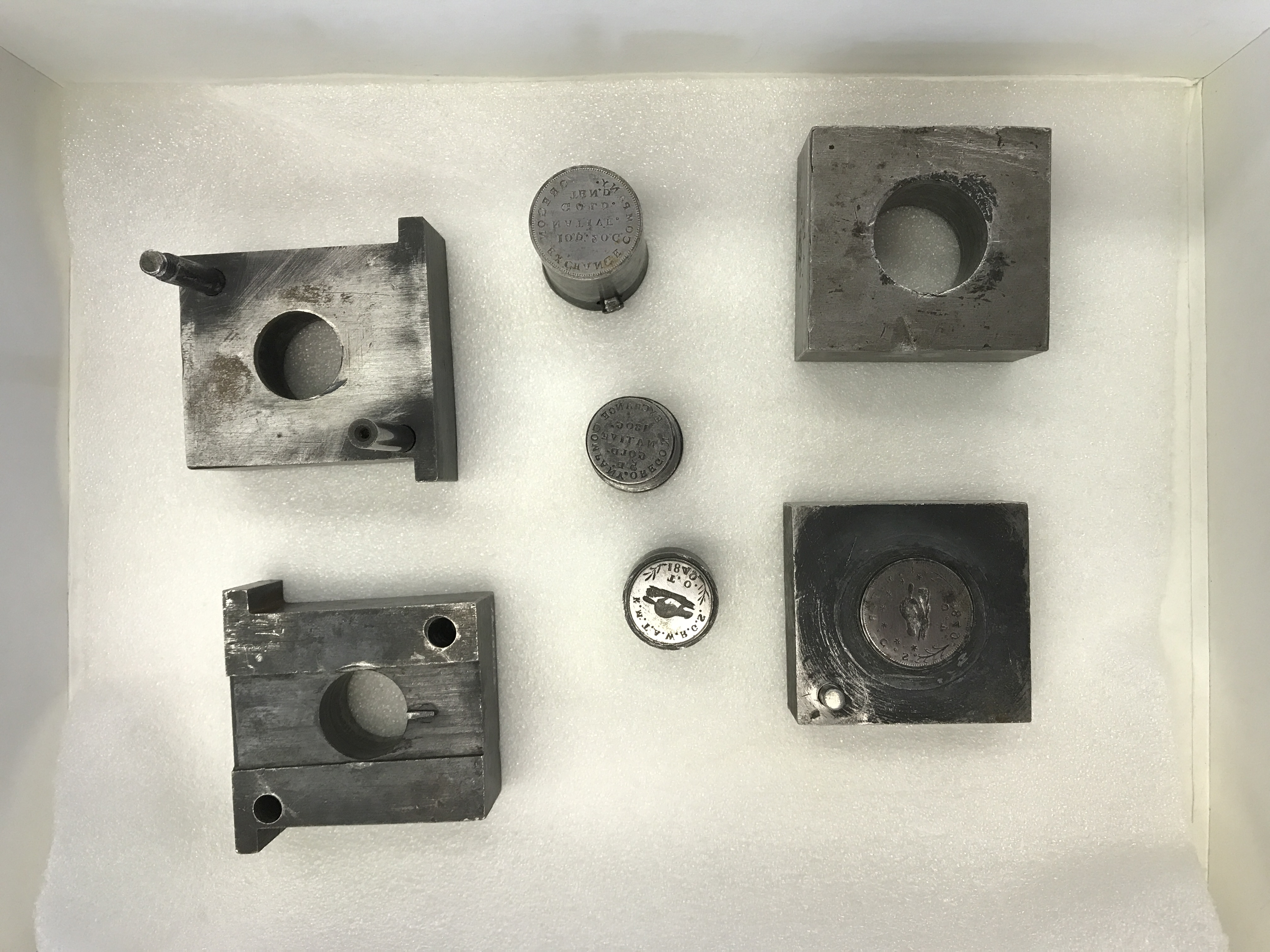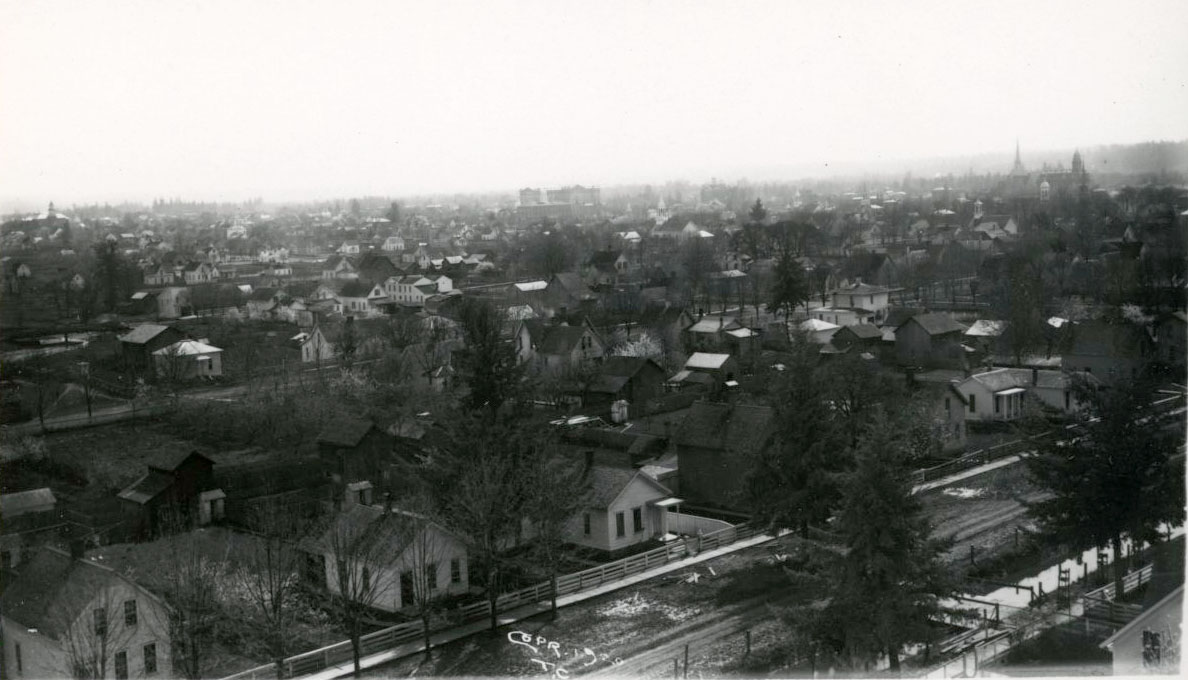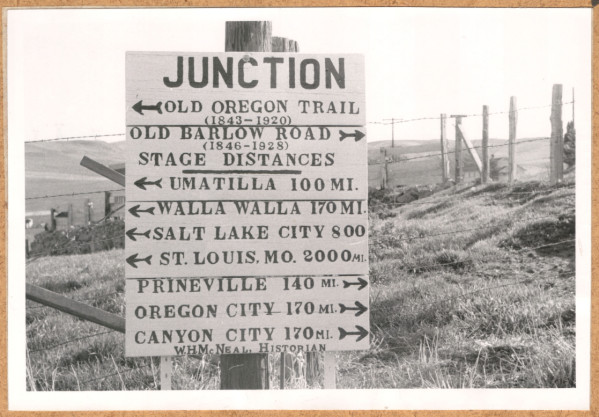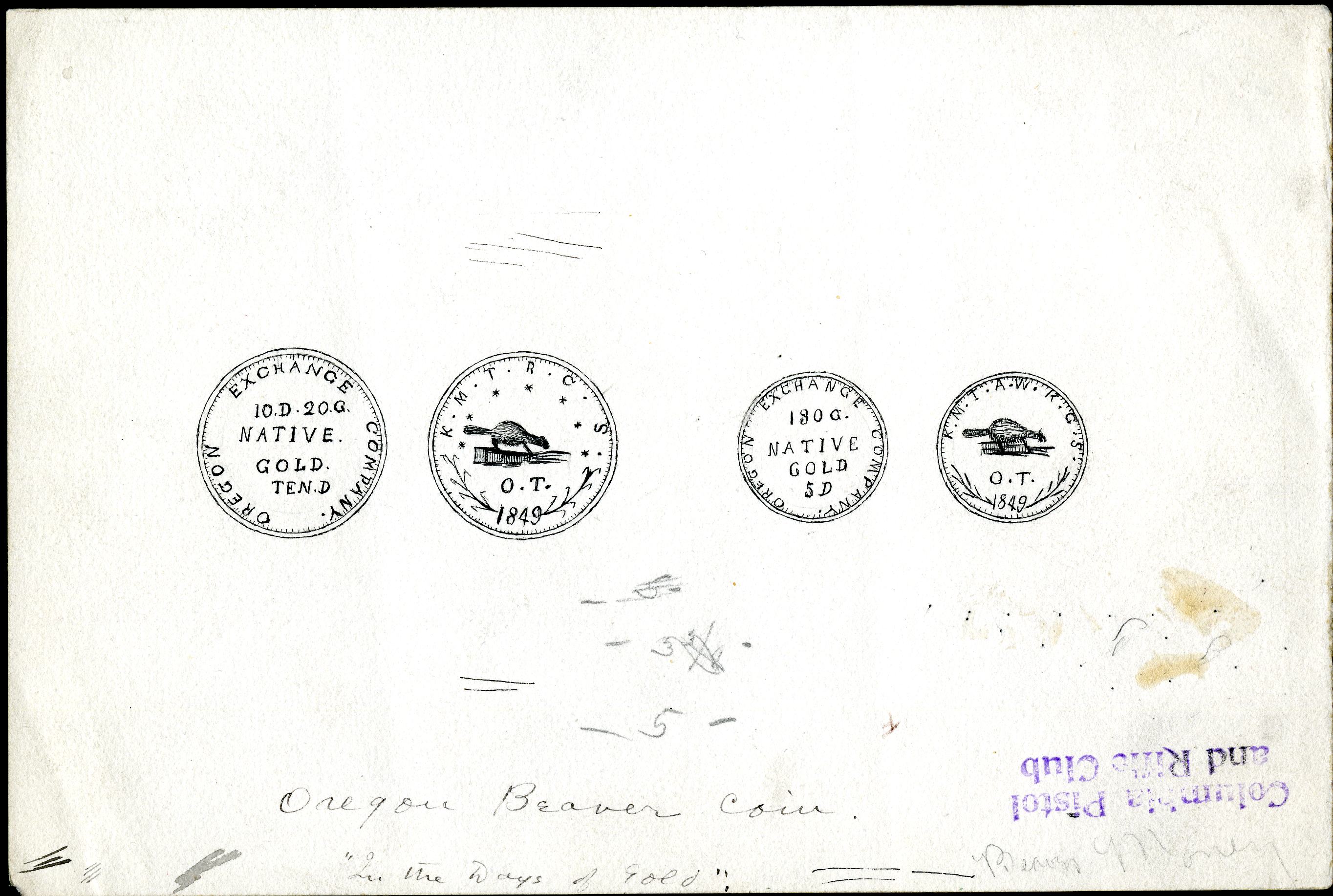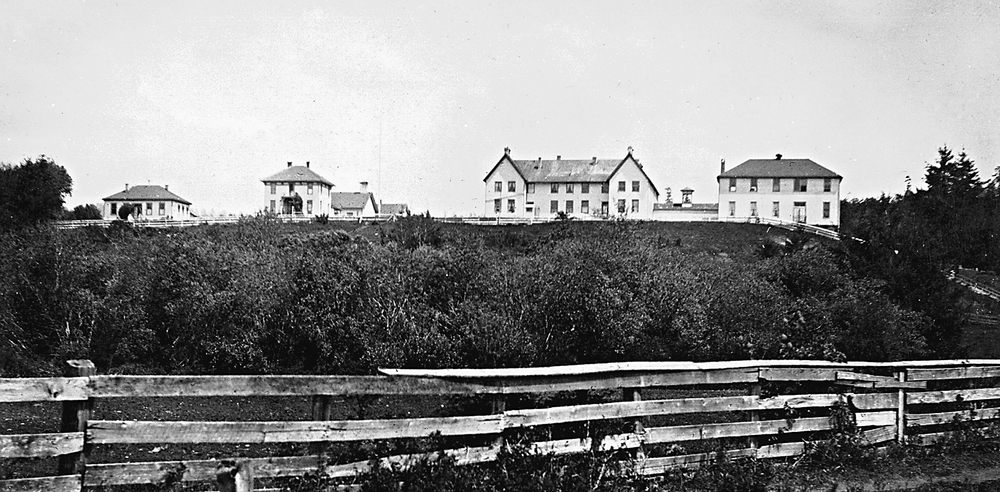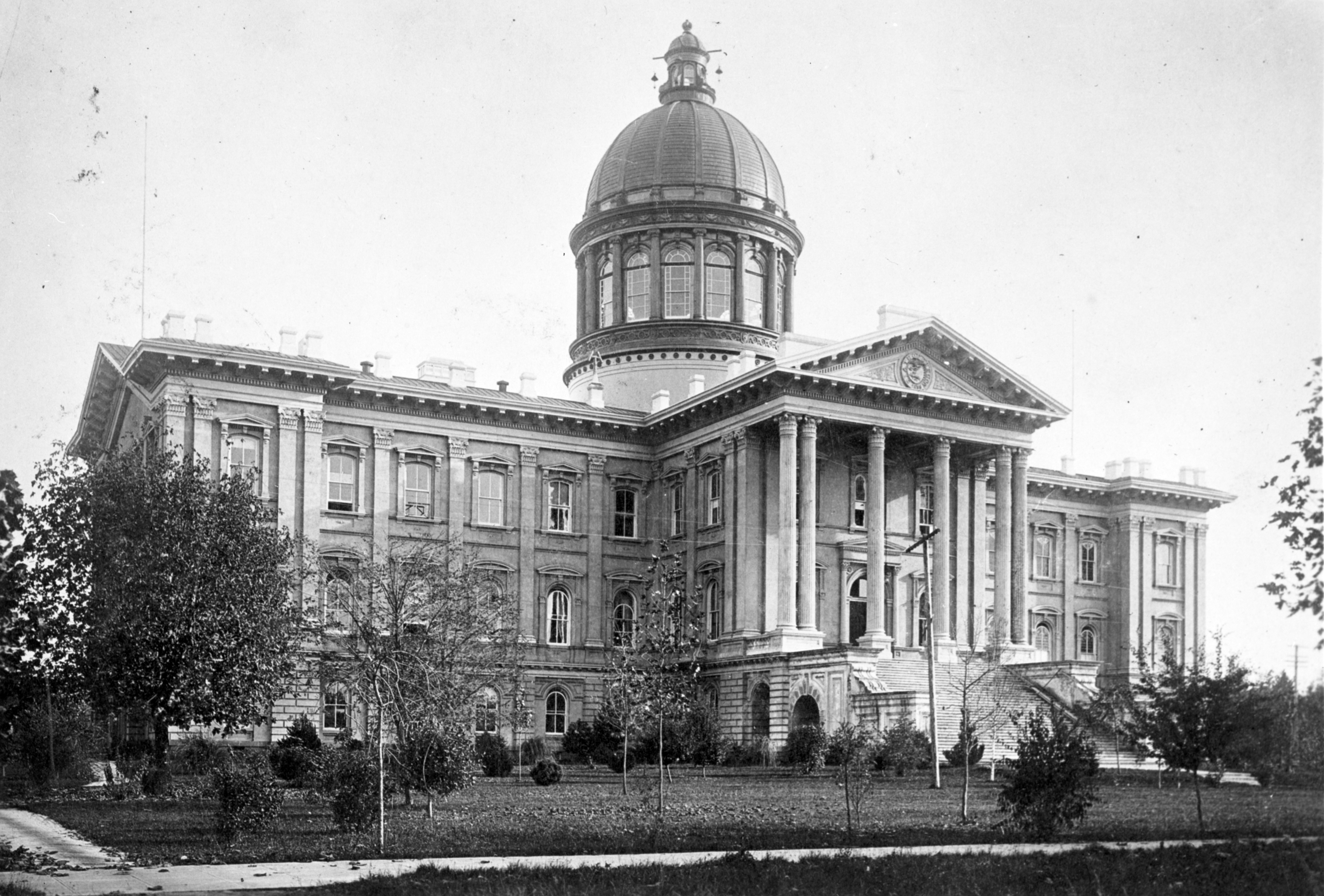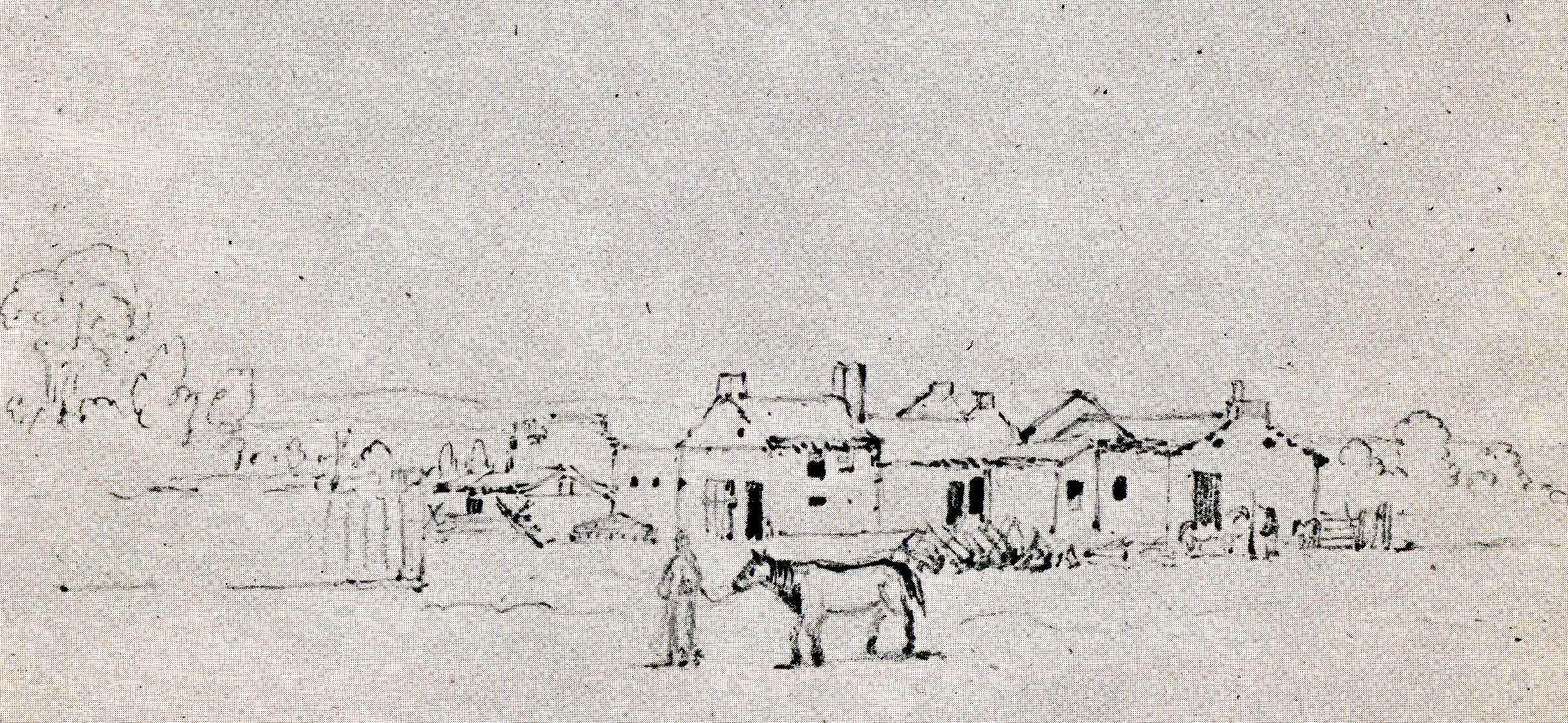William Henry Rector was an Oregon pioneer, builder, business innovator, and political figure. He helped blaze the trail south of Mount Hood in 1845 and, with the help of his sons, he built the Oregon territorial capitol. He co-founded the Oregon Exchange Company, which minted Oregon Beaver money, and the Willamette Woolen Manufacturing Company, the first woolen mill on the West Coast. He served in the Provisional legislature of 1847 and was Oregon’s superintendent of Indian Affairs from 1861 to 1863.
Rector was born in Virginia in 1806. After marrying Ann Perkins in Ohio in 1828, he worked seventeen years as a carpenter and mechanic. The economic conditions created by the Panic of 1837 and their son’s death from scarlet fever prompted the Rectors to move to Oregon in 1845. As part of Joel Palmer’s wagon train, he helped Palmer and Samuel Barlow blaze a trail around the southern flank of Mount Hood into the lower Clackamas River basin, a route that later became the Barlow Road. Befriended by Chief Factor John McLoughlin of the Hudson’s Bay Company, he defended McLoughlin against the Americans who coveted his Willamette Falls land claim.
Under Oregon’s Provisional Government, the Rectors established a land claim in 1846 on Mill Creek southeast of Salem, where they raised cattle and harvested wheat. Under the Oregon Donation Land Act, which Congress passed in 1850, their 639-acre claim was surveyed and validated. In 1847, Rector served in the Provisional legislature and was in the minority in advising no immediate retaliation against the Cayuse after the Whitman murder, believing it was imprudent to send forces "all for glory" into the Blue Mountains during the winter.
News of gold lured Rector and one of his sons to California in 1848, where they had some luck on the Middle Fork of the American River near Placerville. The site of their mining camp was named Rector's Bar. Upon returning to Oregon in 1849, William Rector and seven others started the Oregon Exchange Company, which minted five and ten dollar pure gold Beaver coins in order to help regulate currency in the territory. The mint was constitutionally illegal, however, and the operation soon came to a halt.
Rector spent another season mining in California before returning to Salem to accept contracts from the territorial government to construct the Portland pententiary and the territorial capitol in Salem. For $14,940, Rector oversaw the construction of the capitol, a two-story wood frame building in the Greek-revival style completed in 1855. The original design called for a stone foundation and walls with a dome-topped gable roof, but budgetry concerns eliminated the dome and replaced the stone walls with wood, a decision that resulted in disaster: the capitol burned down almost as soon as it was completed. Some suspected arson as retribution for legislators choosing Salem over Corvallis as the seat of government, but it was never proven. Rector spent at least two years attempting to collect his payment for the project.
Rector became a director and purchasing agent in 1857 for the Willamette Woolen Manufacturing Company in Salem. He powered the mill by constructing a mile-long ditch to carry North Santiam River water into Mill Creek. The company bought wool from sheep ranchers at fifteen to twenty-five cents per pound and produced blankets, flannels, tweeds, and stocking yarn. Rector exhibited the mill products at the California state fair in 1859.
Now a Republican, Recotor returned to politics in 1861 to serve the Lincoln Administration as Oregon’s superintendent of Indian Affairs until 1863. Oregon Trail pioneers were beginning to farm the Grande Ronde valley in northeast Oregon, but Natives used the valley for gathering camas root, fishing, and hunting game. Rector believed that the Walla Walla Council decisions of 1855 did not grant Indians control over the valley, and he approved removal of a Umatilla encampment there in 1862. The Umatilla resisted, and four of them died in a confrontation with the First Oregon Cavalry.
In western Oregon, Rector worked to make the farms on the Oregon Coast Reservation viable and took measures to save Indian lives. He gave travel passes to Indians who wanted to work in the Willamette Valley, reasoning that “to compel…Indians to remain on a reservation without food or clothes…is unjust and inhuman.” He also was distressed by reservation agents, whom he accused of “fraud…and even direct robbery.” At the same time, he was accused by the Oregon Statesman of keeping part of the proceeds from the sale of a U.S. Treasury bank draft. The charge was likely without merit, but Rector left the superintendency in 1863.
In 1865, Rector moved to California, where he failed in two business ventures, producing cotton for the textile industry and making jute grain sacks for California’s wheat industry. He worked in Sonoma County until his death in 1890.
-
![Barlow tollgate, 1885, Rhododendron]()
Barlow tollgate, 1885, Rhododendron .
Barlow tollgate, 1885, Rhododendron Courtesy Univ. of Oregon Lib., pna_23123
-
![]()
Drawing of first Oregon state capitol, Salem.
Courtesy Oregon State Archives, OMP0005
-
One of the original Beaver Coin dies, held in the OHS Archives.
Courtesy Oregon Hist. Soc. Museum
-
![]()
Salem, 1855. The domeless capitol building is in the distance..
Courtesy Oregon Hist. Soc. Research Lib., Cronise, photographer. 0170G056
Related Entries
-
![Barlow Road]()
Barlow Road
The Barlow Road is a historic wagon road that created a new route on th…
-
![Beaver gold coins]()
Beaver gold coins
Beaver gold coins, in five-dollar and ten-dollar denominations, were cr…
-
Coast Indian Reservation
Beginning in 1853, Superintendent of Indian Affairs Joel Palmer negotia…
-
![Oregon State Capitol building of 1876]()
Oregon State Capitol building of 1876
For years after achieving statehood in 1859, Oregon was deprived of a p…
-
![Whitman Murders Trial]()
Whitman Murders Trial
On November 29, 1847, Protestant missionaries Marcus and Narcissa Whitm…
Related Historical Records
Map This on the Oregon History WayFinder
The Oregon History Wayfinder is an interactive map that identifies significant places, people, and events in Oregon history.
Further Reading
Carey, Charles Henry. The History of Oregon. Portland, Ore.: The Pioneer Historical Publishing Co, 1922.
Corning, Howard McKinley, ed. Dictionary of Oregon History. Portland, Ore.: Binford & Mort Publishers, 1956.
Josephy, Alvin M., Jr. The Nez Perce Indians and the Opening of the Northwest. Lincoln: University of Nebraska Press, abridged edition, 1971.
Lockley, Fred. History of the Columbia River Valley: From The Dalles to the Sea. Chicago, Ill.: S.J. Clarke Publishing Company, 1928.
Lomax, Alfred L. Pioneer Woolen Mills in Oregon: History of the Wool and Woolen Textile Industry in Oregon: 1811-1875. Portland, Ore.: Binford and Mort, 1941.
Moore, Saundra. “Oregon’s First Capitols, 1853-1876” Marion County History: Centennial Edition, vol 5. (June 1959) 13-16.
O’Donnell, Terrence. An Arrow in the Earth: General Joel Palmer & the Indians of Oregon. Portland: Oregon Historical Society, 1991.
Oregon Spectator. March 13, 1851. "Salem Meeting Mr. Rector". Page 1, column 2.
Rector, William Henry. “Biographical Sketches of the Life of William Henry Rector – Written by Himself; Introduction by Fred Lockley.” The Oregon Historical Quarterly, 29 (December, 1928) 323-336.

